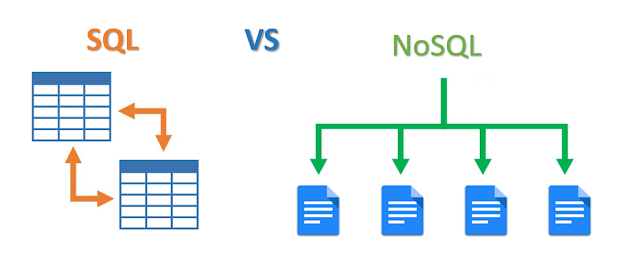SQL stands for Structured Query Language where as NoSQL stands for Not Only SQL.
In this article, we are going o look at the difference between two databases - SQL and NoSQL.
SQL:
- SQL databases are primarily called as Relational Databases (RDBMS).
- SQL databases are table-based
- SQL databases have fixed or static or predefined schema.
- SQL databases follow the ACID property
- SQL databases are Vertically Scalable.
- SQL databases are better for multi-row transactions
- SQL databases are best suited for complex queries
- Examples of SQL databases are MySQL, PostgreSQL, Oracle, MS-SQL Server, etc.
NoSQL:
- NoSQL databases are primarily called as non-relational or distributed database.
- NoSQL databases are either key-value pairs, document-based, graph databases or wide-column stores.
- NoSQL databases have dynamic schema.
- NoSQL databases follow the CAP Theorem
- NoSQL databases are Horizontally scalable.
- NoSQL is better for unstructured data like documents or JSON.
- NoSQL databases are not so good for complex queries
- Examples of NoSQL databases are MongoDB, GraphQL, HBase, Neo4j, Cassandra, etc



